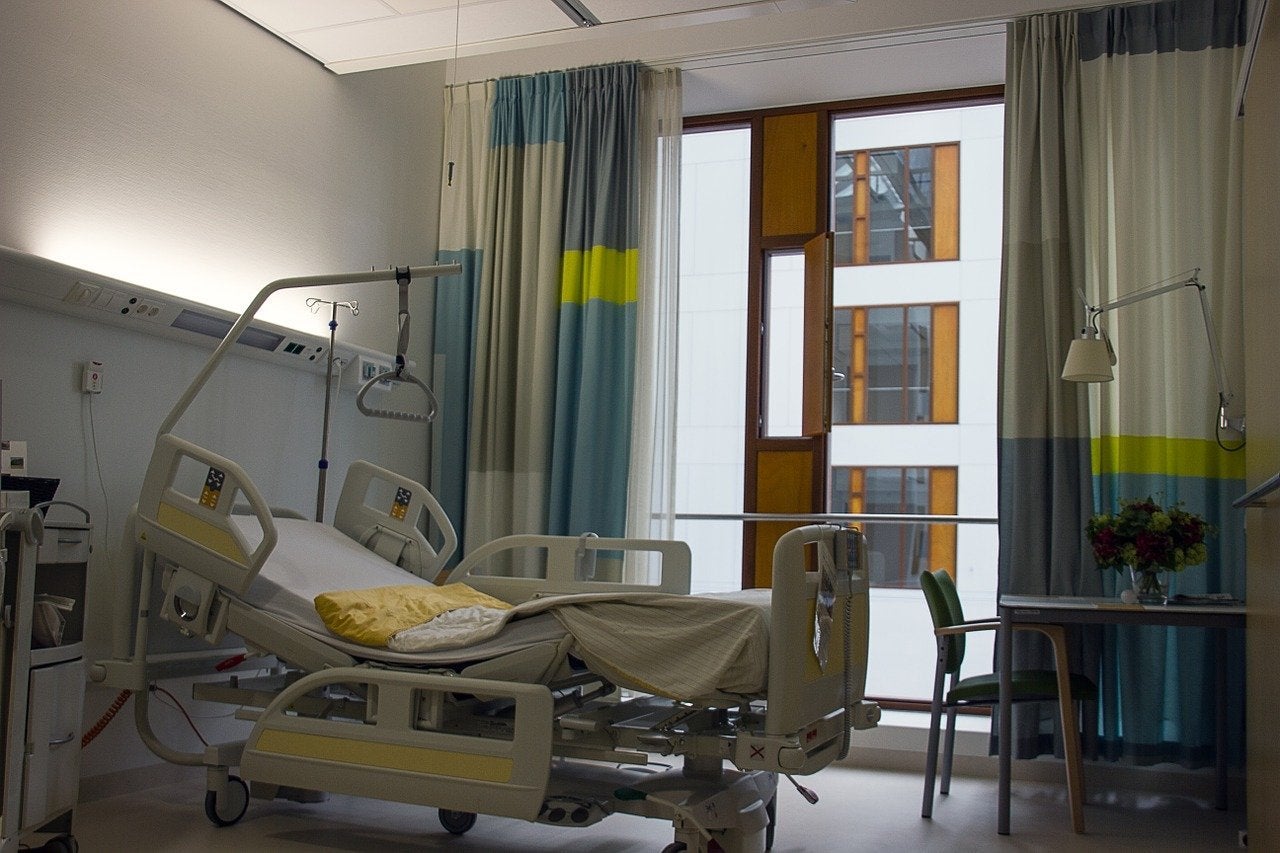It was a Saturday, and I reported to work as usual at 7 a.m. I’m an ICU nurse. The night shift nurse briefed me on the patient I was to take care for the day. He’d come from another floor due to worsening of his symptoms.
As the night-shift nurse was talking about the patient, I remembered him. I’d I had taken care of him before. He’d spent nearly a month in the ICU on a mechanical ventilator. He had COIVD-19 symptoms.
He was 48 years old. We, the entire ICU staff, had provided the best treatment we could, given how little was known about COVID-19 then. All of us worked beyond what we thought we were capable of, especially to keep our emotions at bay. We watched, hopeful, as our patient got better each day.
When he was finally removed from the mechanical ventilator, we watched struggle and fight to make it. His body had trouble breathing on its own because of his prolonged intubation and sedation. We all would stop by his room to encourage him. “Hi, my friend. You are doing better, you are making it; don’t give up,” we’d all tell him.
In a few days, he was transferred out of ICU to a specially arranged COVID floor for continued monitoring. As a nurse rolled him in his wheelchair down hallway toward the COVID-19 floor, the ICU staff cheered with happiness that he was one of the rare survivors of COVID-19 who had been critically ill.
[adrotate banner=”29″]
He spent a couple of weeks on the COVID floor, and on a Friday, thinking he was good to go home, his physicians planned to discharge him. However, the doctors reconsidered and decided he should stay in the hospital for more observation. That night, he got worse, and he was transferred back to the ICU early Saturday morning. That was the morning I was assigned to take care of him.
After hearing the night-shift nurse’s report, my head was spinning. The gravity of his situation weighed heavily on my nerves.
The patient was struggling to breathe, and I skimmed through the list of medicines approved for him to see what I could give him.The racemic epinephrine, a breathing treatment, made him feel a little better, for at least a short time.He tried to talk. He tried to be comfortable, but his energy level was very low.
I notified the ICU physicians about his condition immediately, and they paged the ENT on duty who rushed to the room. The ENT realized the patient’s airway was collapsing – it was smaller than a drinking straw already. So, he placed a small tube with a camera at the tip (what we call a scope) in the patient’s airway at the bedside.
There was no time to waste. Next thing was to get the operating room and the patient ready for an emergency surgery. But then, the formalities first…..getting a consent for the surgery, notifying his wife, explaining to the patient and his wife the risks and benefits of the surgery and the list went on. Finally, the patient and his wife agreed to the surgery of opening up his throat to establish his airway.
I was running around, working to coordinate everything, and another nurse came to my rescue. She started helping me, keeping my thought process straight, picking up on things I was missing, and, more than anything, being with the patient… (You know how much that means to the patient and to me).
His wife called the nurse’s station. I answered the phone and tried to explain to her what had happened and what we were doing to rescue the situation. She wanted to talk to her husband, and I wanted to connect her phone to him, but there was no phone in his room. I ran to another empty room, unplugged the wall phone, rushed to the patient’s room and connected it. When I came back to the nurse’s station, the wife disconnected the call. I reached in to my pocket to grab my cell phone to call her so that she could talk to him; but then the nurse’s station phone rang again, and I realized that it was her.
[adrotate banner=”19″]
I transferred her phone call. My helpful colleague held the phone to his ear, and he talked to his wife. In a few seconds, the surgery team arrived to take him to the operating room. I requested them to wait until he finished talking to his wife. At the end of their conversation, I saw him crying…tears rolling down his cheeks, making channels down his neck. Then he smiled. I assured him, “You are going to be okay. You need this surgery. We will take care of you.”
I tried to show all my courage and confidence. He grabbed my hand, and I told him, “See you in a while,” and he was wheeled away into to surgery.
I knew that surgery would take a couple of hours. As the morning stretched toward noon, I went to lunch so I could be there, ready, when he returned from surgery.
During lunch, I heard an overhead announcement, but the sound was garbled. I didn’t understand it, so I continued with my lunch. Then, I saw some of the ICU staff running, I stuffed the last bite of my lunch in my mouth and ran, too, following the others.
I realized I’d heard a “Code Blue” from the operating room. I ran to the OR and saw the code team doing chest compressions on my patient. We did everything we could, for almost an hour, but the patient could not be recovered. We moved his body back to ICU.
That’s when I saw his wife walking to the ICU accompanied by ICU physicians. She went to the family counselling room, and I got her and took her to her husband’s room. She stood outside the room, peeking through the ICU glass door and curtain, and wept bitterly. I saw her entire body giving away. Gravity overcame her ability to stand erect. I caught one side of her, my colleague grabbed the other. We held her up, and we stayed with her.
She gathered all her strength and slowly walked into her husband’s room, to his bedside. She sat in one of the chairs. Behind the curtain, she talked to him, touched him, and, at times, cried out loudly.
[adrotate banner=”54″]
When she had finished her time with her husband, we prepared the body to be removed. As usual, we placed our patient on the gurney.
Because he had served in the military, we honored his service by placing the national flag over the gurney. As we rolled the gurney into the hallway, the national anthem sounded through the hospital ICU speakers. The ICU staff lined up on both sides of the hallway, either saluting or placing their right hands on their chests.
I felt that the silence was heavier than ever, and the rolling of the gurney wheels seemed louder than anything I had ever heard in my life. My patient’s wife stayed with the ICU staff, and we all had heavy hearts.
I gathered his belongings into a bag and gave them to his wife. I had never before experienced such a scarcity of words. I walked with my patient’s wife along the ICU hallway to the exit sign. As she walked away holding that one small bag in her hand, the hallway narrowed, constricted, and looked like it would never end.
And I saw in her steps the emptiness that remains…

Jimmy George is a nurse in Augusta. He was born and reared in the southernmost state of India, Kerala. He completed his master’s degree in biology and specialized in bioinformatics. He moved to the United states 15 years ago to pursue a Ph.D. in bioinformatics at the University of Georgia. Within a year, he decided to switch to nursing and completed a master’s degree in nursing at Augusta University with a clinical nurse leader (CNL) certification. He has been a registered nurse for the last nine years and currently works as an ICU nurse. His wife is also a nurse, and they have two daughters. On their off days, they enjoy working in our backyard vegetable garden and cooking fresh, organic and hand-picked vegetables.












